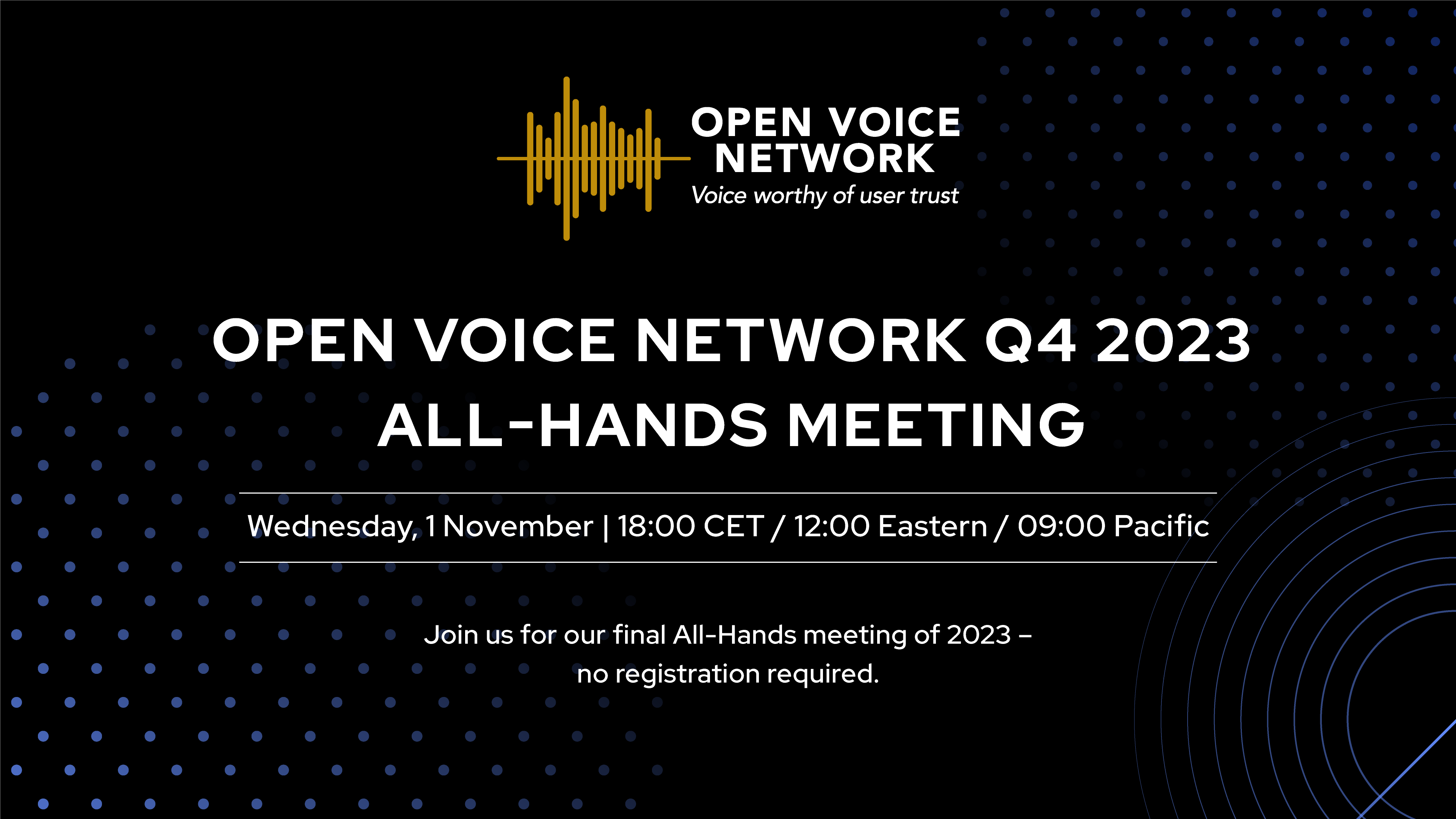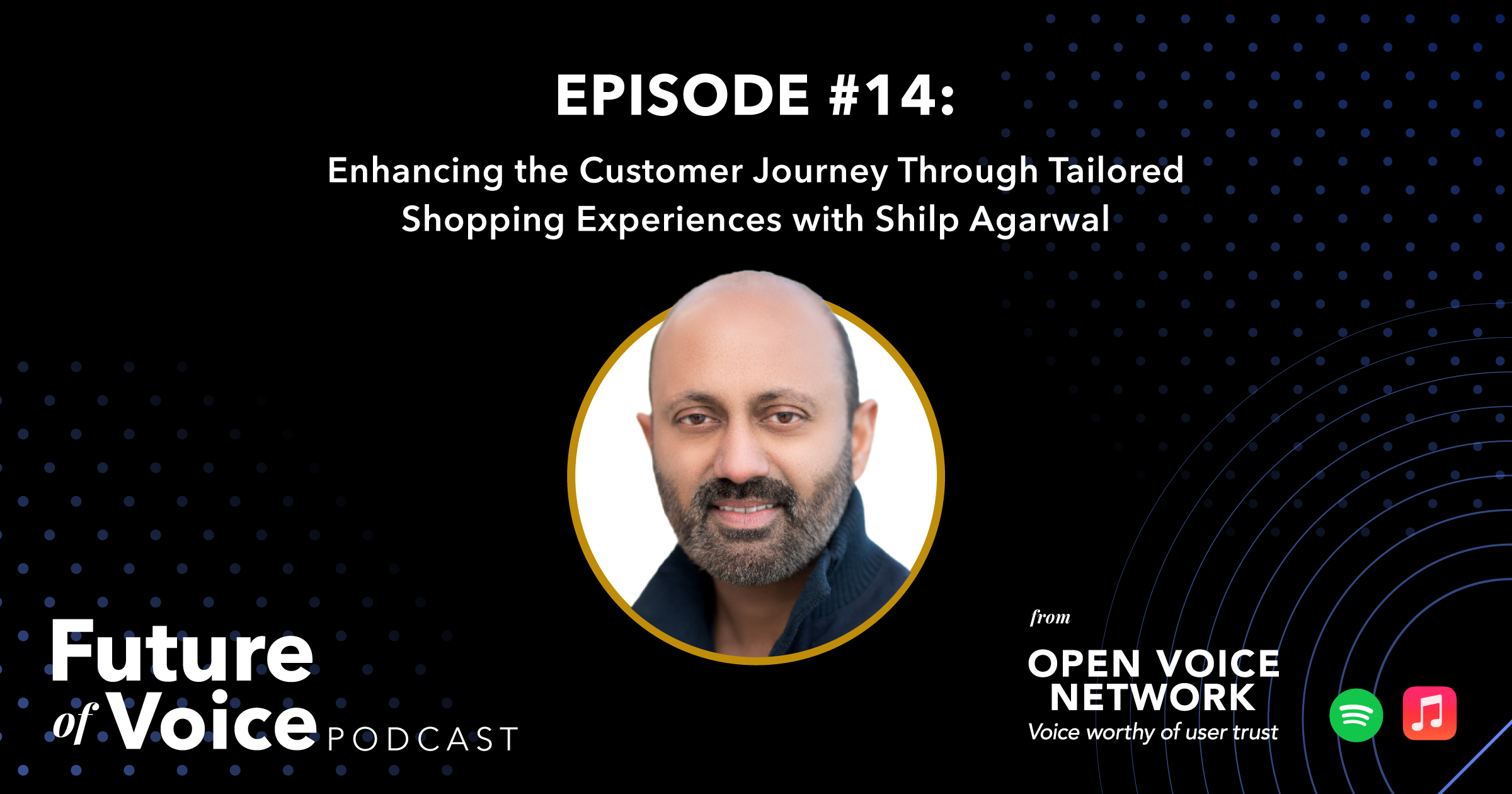AI-voice enabled devices and technology will soon be the new norm. How will the play out in a world that lacks standards and proper safeguards related to voice?

It’s clear that artificial intelligence-enabled voice assistance is one of today’s most transformative technologies.
Its availability and usage adoption is growing rapidly. According to Juniper Research, some 3.25 billion voice assistants will be in use in 2019, growing to roughly 8 billion by 2023 – a 25 percent CAGR. Last year roughly one in eight Google searches (some 250 billion) were conducted by voice. AI-voice will soon be the primary way we will connect to the internet, smart places and things, and the digital workplace.
AI-enabled voice will also re-shape digital usage. Voice offers the ultimate usage ease and convenience; there’s no typing, tapping, or swiping – users simply talk. With AI-voice, channels are changed and preferences remembered; customer questions of order status and shipping are accurately answered to 24-7 delight; workers file reports (and enter data) sans keyboards; and shopping is done in moments from the kitchen or the car.
However: today’s AI-voice environment is like the early, pre-standards days of the internet. There’s no recognized registry of destination or dispatch names, no assured way for consumers to find companies or brands. There are significant issues of personal and commercial data use and privacy. Market leaders have created proprietary, gated AI-voice platforms and ecosystems.
In such an environment, there’s a critical need for leaders – enterprise users and developers alike – to join together and develop the standards that will allow this transformative technology to reach its full, open, potential.
Standards that encourage use and growth. Standards that enable competitive differentiation.
Standards that will give everyone their voice.
Which is the reason for The Open Voice Network. A non-profit association of enterprises, tech firms, developers, and researchers that share the belief that conversational AI will deliver the most to the most when it is standards-based and open: accessible to all, data protected, and interoperable.
Why is this of concern to enterprises?
The growth of AI-voice now poses questions like these: in the current “wild west” voice environment, will consumers be able to confidently and consistently find your company and your brand? Will business-critical commercial (and customer) data be claimed (and used) by proprietary platform providers? Will the IT shop be forced to manage skills and actions across some 18-20 different platforms – or will they be able to build once and use many? Will the costs of search optimization accelerate – especially in the current proprietary environment, and in the winner-take-all reality of voice-based search?
Recent research shows clearly that AI-voice assistance is now being used by consumers in the selection, purchase, and post-purchase management of products and services. A November 2018 voicebot.ai study found that 24.8 percent of US respondents regularly used a smartphone-based voice assistant to research products before purchase. In addition, AI-voice allows enterprises to listen to their customers, and respond not only with products, but with advice, usage information, and recommendations.
Whose issue is this?
CEOs. Chief strategists. Chief marketers. Chief Information, Technology, and Digital officers. Those responsible for revenue and market share. Those responsible for digital commerce. Those responsible for data and data security.
Why should a company like mine devote money and time to standards development?
Quite simply, it pays. Standards inevitably help grow the market. And enterprises that are active in standards development drive efficiencies, gain market access, and create competitive differentiation faster than those that don’t. From a market-share point of view, the question is whether you or your competitors will guide the future of the technology.
For more than a century, voluntary standardization and conformity assessment activities have grown usage, strengthened markets, and saved money for private and public sector entities. By participating in standards development activities that touch your products and services – and by implementing standards and conformance tools that streamline development processes and trim costs – companies build market share and boost bottom lines.
What standards are needed for AI-voice?
Industry technology standards and guidelines which – inevitably – encourage ecosystem development and innovation. Standards similar to those that enabled the remarkable growth of the internet. Standards that encourage the development of a commercial ecosystem and competitive differentiation.
Such standards for AI-voice could address:
- A global wake and destination registry – a Domain Name System (DNS) for voice
- User identification and authentication in a multi-platform, multi-destination environment
- Issues of personal and commercial data privacy
- Interoperability
- The use of voice in common, non-differentiating business processes
Does voice present unique issues in regards to consumer data privacy?
Yes. Voice is extremely data-rich. It is a biometric identifier, and can enable diagnosis not only of sentiment (consumer confidence, for instance), but selected physical and mental illnesses. For these and many other reasons, it is important to develop a neutral, considered perspective on the issue of voice and data privacy.
Who or what can develop and deliver such standards?
The Open Voice Network is a new non-profit industry association that is dedicated to the development and proposal of open standards and guidelines for AI voice assistance, comprised of consumer-facing enterprises, top-tier technology firms, marketers, and tech innovators.
The Open Voice Network emerged from 2016-2018 research into the impact of AI-voice on commerce led by the Massachusetts Institute of Technology (MIT) Auto-ID Laboratory, Capgemini Consulting, and the Intel Corporation, which concluded that the rich potential of AI-voice for all could be realized only in an open, standards-based environment.



